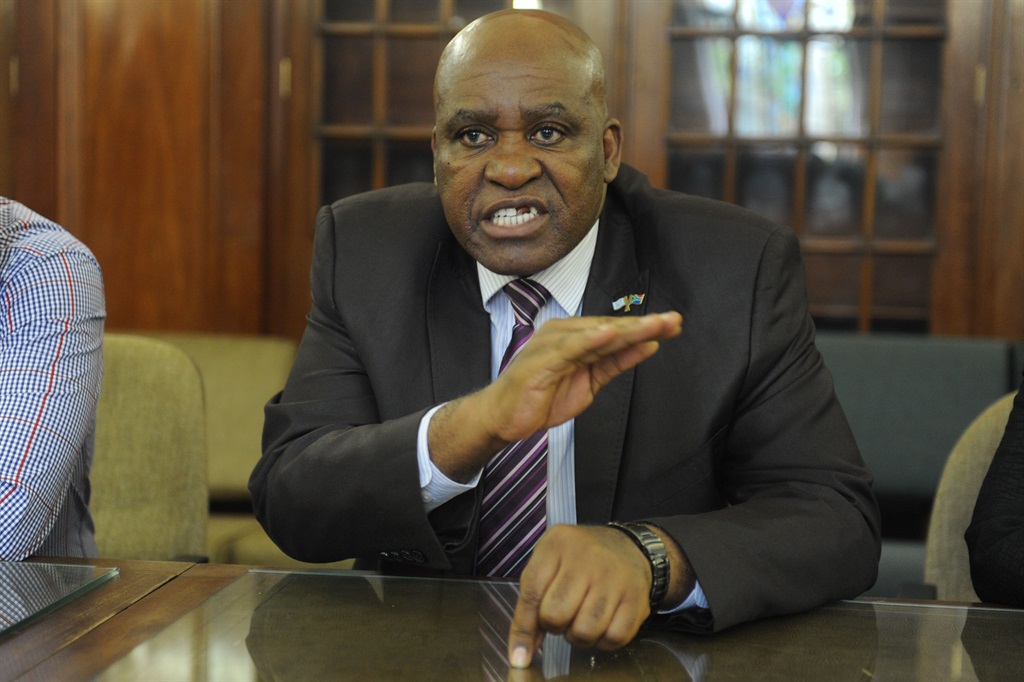
For two consecutive years in his state of the nation address the president has boasted about the specialised units established to help fight crime, but there is not much to show for it, it emerged in Parliament on Wednesday.
Lieutenant-General Berning Ntlemeza, head of the Hawks, reported to the parliamentary portfolio committee on police on the progress of these units, which were set up to target issues such as drug related crimes and illegal firearms. But members of Parliament were not completely convinced of the progress or why there had been delays in progress.
The narcotics enforcement bureau had made 436 arrests thus far, but only notched up 28 convictions. The national bureau for illegal firearm control and priority violent crime made 231 arrests and had only 22 convictions.
Ntlemeza told MPs “the issue of convictions is not within my power”.
Ntlemeza was peppered with questions over why a year after the establishment of these units was announced there was an issue over approving the units’ organisational structures.
And he laid the blame at the door of acting national commissioner, Lieutenant-General Khomotso Phahlane.
“The Hawks are independent but the issue was an accounting officer who wanted to give input on issues, even if the act is clear on the independence of the Hawks.
“It is because the acting police commissioner had to check and make comments and we were not agreeing – so it was back and forth until all was clarified.
Ntlemeza said he determines the structure and it had nothing to do with the commissioner’s office.
“I took a decision based on what I needed but we didn’t see eye to eye, so that caused the delay.”
Ntlemeza also reiterated that nowhere in the law did it say that he needed the approval of the national commissioner; only the minister’s approval was necessary.
Ntlemeza also urged that the situation be clarified, “because the public will not see the Hawks as independent”.
The interim provincial structure that was to be approved consisted of only 90 personnel for the illegal firearm control unit in all nine provinces and 106 for the unit focusing on drug-related crimes.
In provinces like the Western Cape, where drug related crimes are rife, the structure provides for only nine staff members.
The units are also heavily dependent on the police service’s crime intelligence and organised crime units to supplement capacity.
According to the Hawks’ presentation there were still temporary organisational structures in provinces. In a province like the Eastern Cape, the two units had only three and two staff members respectively.
Also, the security clearance of some top officials was still in progress.
Democratic Alliance member of Parliament Zak Mbhele said the president had made an announcement on the specialised units after a series of parliamentary questions over an increase in drug-related crimes, among others.
“There is an acute urgency to deal with the issue. Drug related crimes are increasing. There are now about 150% more cases than ten years ago. So it is rising and a growing crisis. And yet after a year, there is still interim structures and we are not where we are suppose to be.”
Economic Freedom Fighters MP Philip Mhlongo expressed concern because these units still relied heavily on existing divisions such as organisational crime and crime intelligence to beef up capacity.
“How can the DPCI [Hawks] be independent if its eyes must come from police?”
ANC MP Leonard Ramatlakane asked about the process stalling.
"What was the problem if both of you couldn’t agree for a year?”
Ntlemeza maintained that he started with the process early enough, “but internal processes took longer”.
“There was this issue of the accounting officer that caused delays. The structure had to be taken to the office of accounting officer to peruse because money will be involved and that caused a delay.”
In President Jacob Zuma’s address in February, he said: “Other measures to fight crime nationally will include the establishment of specialised units, focusing on drug-related crime, taxi violence and firearms and the enhanced utilisation of investigative aids such as forensic leads.”
 |
| ||||||||||||||
| |||||||||||||||




 Publications
Publications
 Partners
Partners








